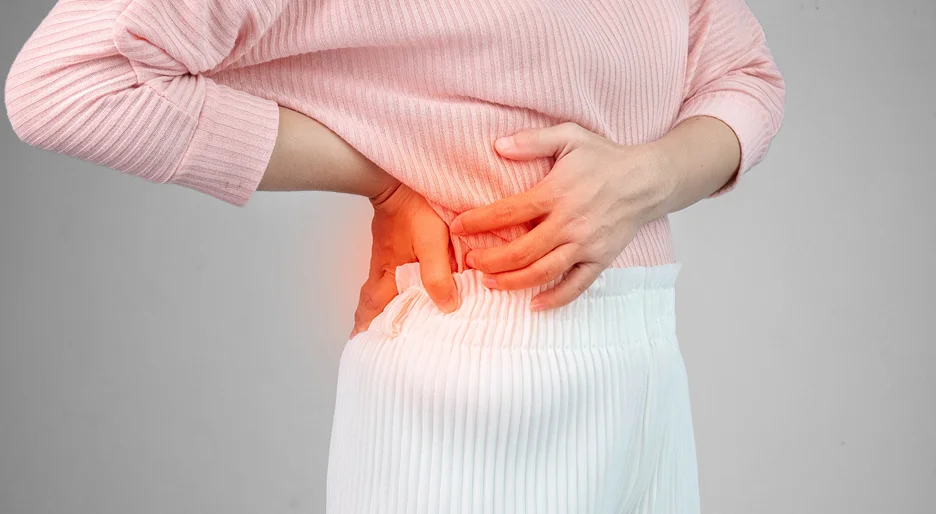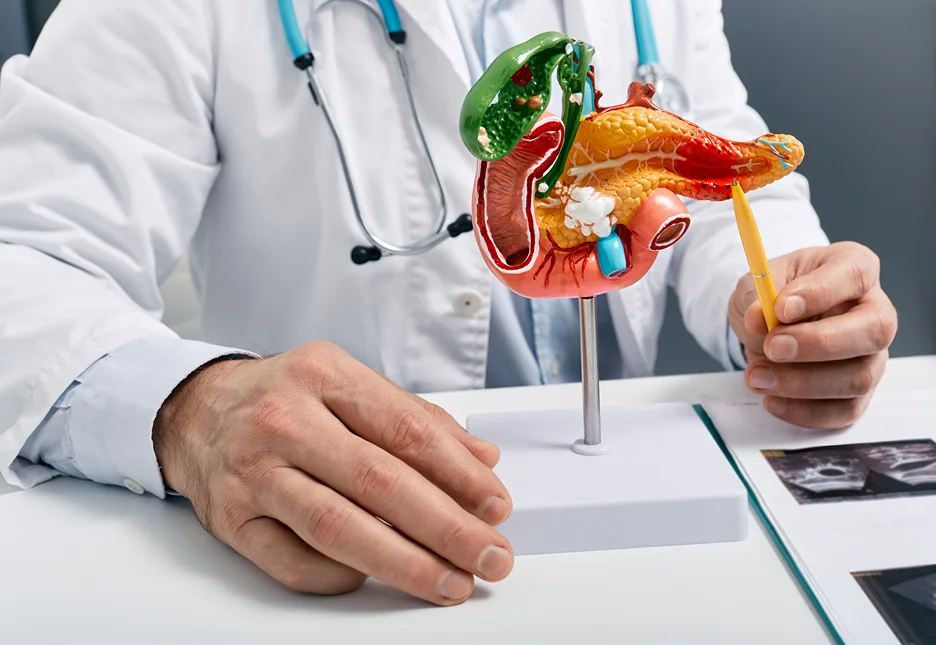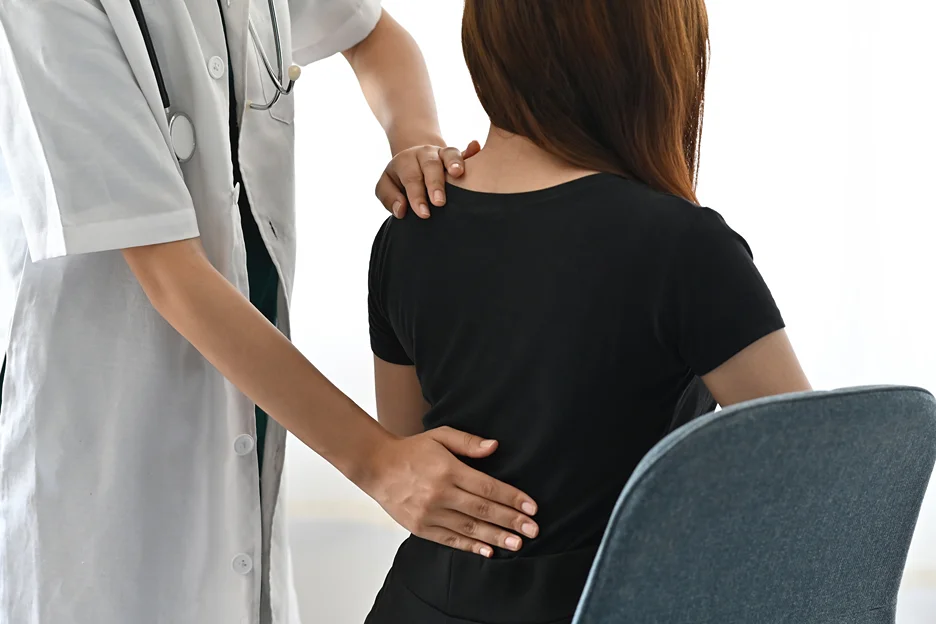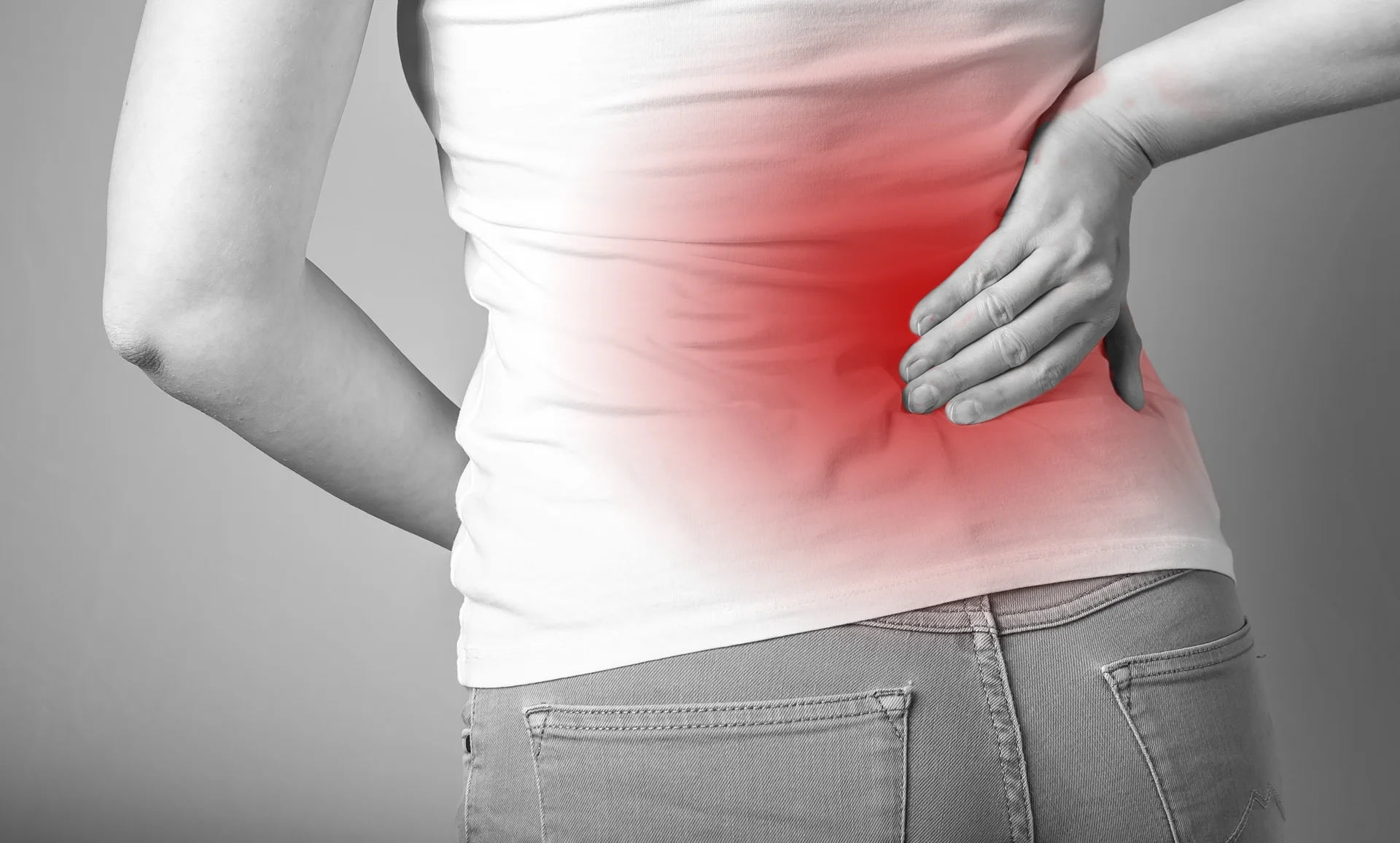Discover the surprising connection between lower back pain and diarrhea. Learn how these symptoms may be related and what you can do about it.
In this article, we’ll explore the various conditions that can lead to both lower back pain and diarrhea, providing valuable insights into their symptoms, treatments, and preventive measures.
From appendicitis and kidney infections to conditions like celiac disease, dysmenorrhea, diverticulosis, and inflammatory bowel disease (IBD), multiple factors could be contributing to your discomfort.
Appendicitis and Lower Back Pain

If you experience sudden and severe lower back pain along with diarrhea, it’s important to consider the possibility of appendicitis as a potential cause.
Appendicitis is a condition where the appendix becomes inflamed, leading to symptoms such as pain near the navel, diarrhea, fever, and loss of appetite. The pain often starts around the navel and then moves to the lower right abdomen.
If left untreated, the appendix can rupture, leading to a serious and potentially life-threatening infection. If you suspect appendicitis, seek immediate medical attention.
A doctor can perform tests to diagnose the condition and recommend the appropriate treatment, which often involves surgical removal of the appendix.
Taking quick action can prevent complications and promote a speedy recovery.
Kidney Infection and Diarrhea
- When experiencing lower back pain and diarrhea, kidney infection can be a potential cause to consider.
- Kidney infection can lead to additional symptoms such as nausea, fever, and urinary issues.
- If you suspect a kidney infection, it’s essential to seek medical attention promptly.
Here’s what you should know:
Symptoms of Kidney Infection:
- Severe back pain
- Persistent diarrhea
Seeking Medical Help:
- Contact your healthcare provider immediately
- Describe your symptoms in detail
Fecal Intestinal Obstruction Symptoms
Experiencing sudden diarrhea and lower back pain? Learn about the symptoms of fecal intestinal obstruction and what you should be aware of.
Fecal intestinal obstruction occurs when hard stool becomes stuck in the rectum, leading to abdominal and lower back pain, fluid leakage, and sudden diarrhea.
It’s important to recognize the signs and symptoms of fecal intestinal obstruction to seek timely medical attention. Here’s a quick look at the symptoms to be aware of:
| Symptom | Description | Action Needed |
| Abdominal Pain | Severe, cramping pain in the abdomen | Seek medical attention |
| Lower Back Pain | Persistent, intense pain in the lower back | Consult a doctor |
| Sudden Diarrhea | Frequent, urgent bowel movements with loose stools | Contact healthcare provider |
If you’re experiencing these symptoms, it’s crucial to consult a medical professional promptly to receive appropriate care and treatment.
Pancreatic Cancer and Digestive Issues

Discussing the connection between lower back pain and diarrhea, let’s now delve into the impact of pancreatic cancer on digestive issues.
Digestive Symptoms of Pancreatic Cancer:
- Diarrhea: Pancreatic cancer can lead to frequent, loose, oily stools due to inadequate pancreatic enzyme production.
- Nausea and Vomiting: Tumors affecting the pancreas can cause digestive issues, leading to feelings of nausea and vomiting.
Pancreatic cancer’s influence on the digestive system can cause distressing symptoms like diarrhea and nausea. These digestive issues occur due to the tumor’s impact on the pancreas’s ability to produce essential enzymes for digestion.
Understanding the connection between lower back pain, diarrhea, and pancreatic cancer can aid in early detection and timely medical intervention.
If you experience persistent digestive symptoms alongside lower back pain, consulting a healthcare professional is crucial for comprehensive evaluation and appropriate management.
Celiac Disease Connection
The link between lower back pain and diarrhea can also be attributed to celiac disease, an immune reaction to gluten that can lead to chronic digestive issues and discomfort.
When individuals with celiac disease consume gluten, their immune system responds by damaging the small intestine, leading to diarrhea, bloating, and lower back pain. This condition can also cause fatigue, weight loss, and nutrient deficiencies if left untreated.
Managing celiac disease involves adopting a strict gluten-free diet and carefully monitoring food and product labels. Lifestyle changes, such as stress management and regular exercise, are also recommended to alleviate symptoms.
If you suspect you have celiac disease, it’s important to consult a healthcare professional for proper diagnosis and guidance on managing this condition.
Dysmenorrhea and Gastrointestinal Symptoms
How does dysmenorrhea contribute to gastrointestinal symptoms such as diarrhea and lower back pain?
- During menstruation, the uterus releases hormone-like substances called prostaglandins.
- Excessive prostaglandins can cause uterine contractions leading to menstrual cramps and also affect the gastrointestinal tract, resulting in symptoms like diarrhea.
- Prostaglandins can trigger the release of inflammatory substances, contributing to lower back pain commonly experienced during menstruation.
Understanding this link can help in managing the associated symptoms more effectively, potentially through lifestyle adjustments, over-the-counter pain medications, and dietary modifications.
Understanding Diverticulosis
To understand diverticulosis, you should consider how it contributes to gastrointestinal symptoms like diarrhea and lower back pain.
Diverticulosis involves the development of small bulges, called diverticula, in the colon wall. These bulges can become inflamed or infected, leading to symptoms such as diarrhea, lower abdominal cramping, and bloating.
To manage diverticulosis, dietary changes and increased fiber intake are often recommended to promote healthy bowel movements and reduce the risk of complications. Medications may also be prescribed to manage symptoms. In severe cases, surgery may be necessary to remove the affected part of the colon.
Preventative measures include maintaining a high-fiber diet, staying well-hydrated, and engaging in regular exercise to support overall colon health.
Inflammatory Bowel Disease (IBD) Impact
If you experience recurrent diarrhea and lower back pain, inflammatory bowel disease (IBD) may be impacting your symptoms.
- IBD Impact:
- Flare-ups: IBD can lead to flare-ups with intense abdominal pain, diarrhea, and fatigue, often accompanied by lower back pain.
- Systemic effects: IBD can cause systemic inflammation, affecting not only the intestines but also leading to joint pain and inflammation in the lower back area.
Understanding how IBD impacts your symptoms is crucial for managing your condition effectively. By recognizing the link between your lower back pain and IBD, you can work with your healthcare provider to develop a comprehensive treatment plan.
Lifestyle adjustments, medication, and regular monitoring can help you mitigate the impact of IBD on your overall well-being.
Contact Kaly Today

If you’re experiencing lower back pain and diarrhea, it’s important to consider potential underlying health issues. Conditions like appendicitis, kidney infections, and inflammatory bowel disease could be contributing to your symptoms.
Seeking medical attention and making lifestyle changes can help address these issues and improve your overall well-being.
Stay informed and proactive about your health to ensure that you’re taking the necessary steps to address these symptoms.
